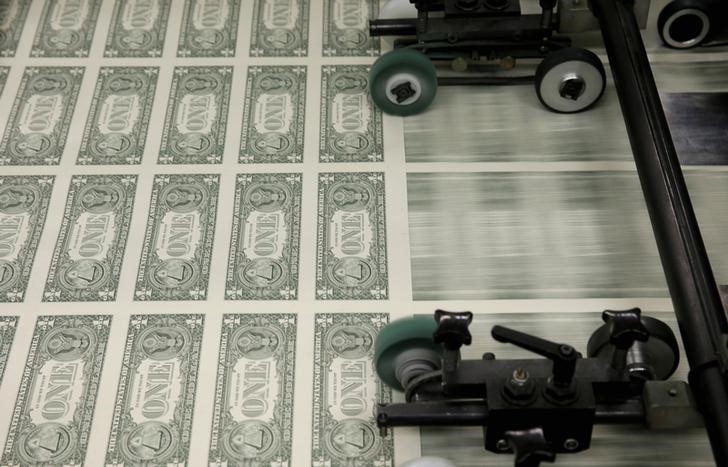Investing.com - The dollar dropped to three-month lows against a basket of other major currencies on Wednesday, as downbeat U.S. economic reports added to uncertainty over the strength of the recovery.
In a report, payroll processing firm ADP said non-farm private employment rose by 169,000 last month, below expectations for an increase of 200,000. The economy created 175,000 jobs in March, whose figure was downwardly revised from a previously reported increase of 189,000.
A separate report showed that U.S. non-farm business sector labor productivity decreased by 1.9% in the first three months of the year, worse than expectations for a decline of 1.8%. The preceding quarter’s figure was revised to a drop of 2.1% from a previously reported fall of 2.2%.
The report also said unit labor costs increased by 5.0% in the first quarter, above forecasts for a gain of 4.3% and following rise of 4.2% in the fourth quarter.
The U.S. dollar index, which measures the greenback’s strength against a trade-weighted basket of six major currencies, was down 1.34% to 93.99, the lowest level since February 19.
EUR/USD rallied 1.51% to 1.1354 after Greece made a small interest payment to the International Monetary Fund, but European lenders crushed hopes for a cash-for-reforms deal before a bigger installment Athens is expected to pay next week.
Earlier Wednesday, data showed that the euro area final composite purchasing managers' index came in at 53.9 in April, up from a preliminary reading of 53.5 and just below March's 11-month high of 54.0.
A separate report showed that euro zone retails sales fell 0.8% in March, worse than forecasts for a 0.7% decline.
The pound was also higher, with GBP/USD up 0.61% to 1.5273 after data showed that growth in the U.K. service sector jumped to an eight-month high in April.
Research firm Markit said the U.K. services PMI rose to 59.5 in April from 58.9 in March. Economists had forecast a decline to 58.5.
But investors remained cautious ahead of Thursday’s elections which were widely expected to result in a hung parliament and an unstable coalition government.
Elsewhere, the dollar was lower against the yen and the Swiss franc, with USD/JPY shedding 0.36% to 119.38 and with USD/CHF plummeting 1.43% to 0.9133.
The Australian dollar pushed higher, with AUD/USD up 1% to 0.8020, while NZD/USD slid 0.28% to 0.7535.
The kiwi weakened after Statistics New Zealand earlier reported that the number of employed people rose by 0.7% in the first quarter, disappointing expectations for a 0.8% gain, after an increase of 1.2% in the last three months of 2014.
The report also showed that New Zealand's unemployment rate rose to 5.8% in the three months to March from 5.7% in the previous quarter, compared to expectations for a decline to 5.5%.
USD/CAD dropped 0.88% to trade at 1.1962. In Canada, the Richard Ivey School of Business said that its PMI rose to 58.2 last month from 47.9 in March, beating expectations for an increase to 49.2.
